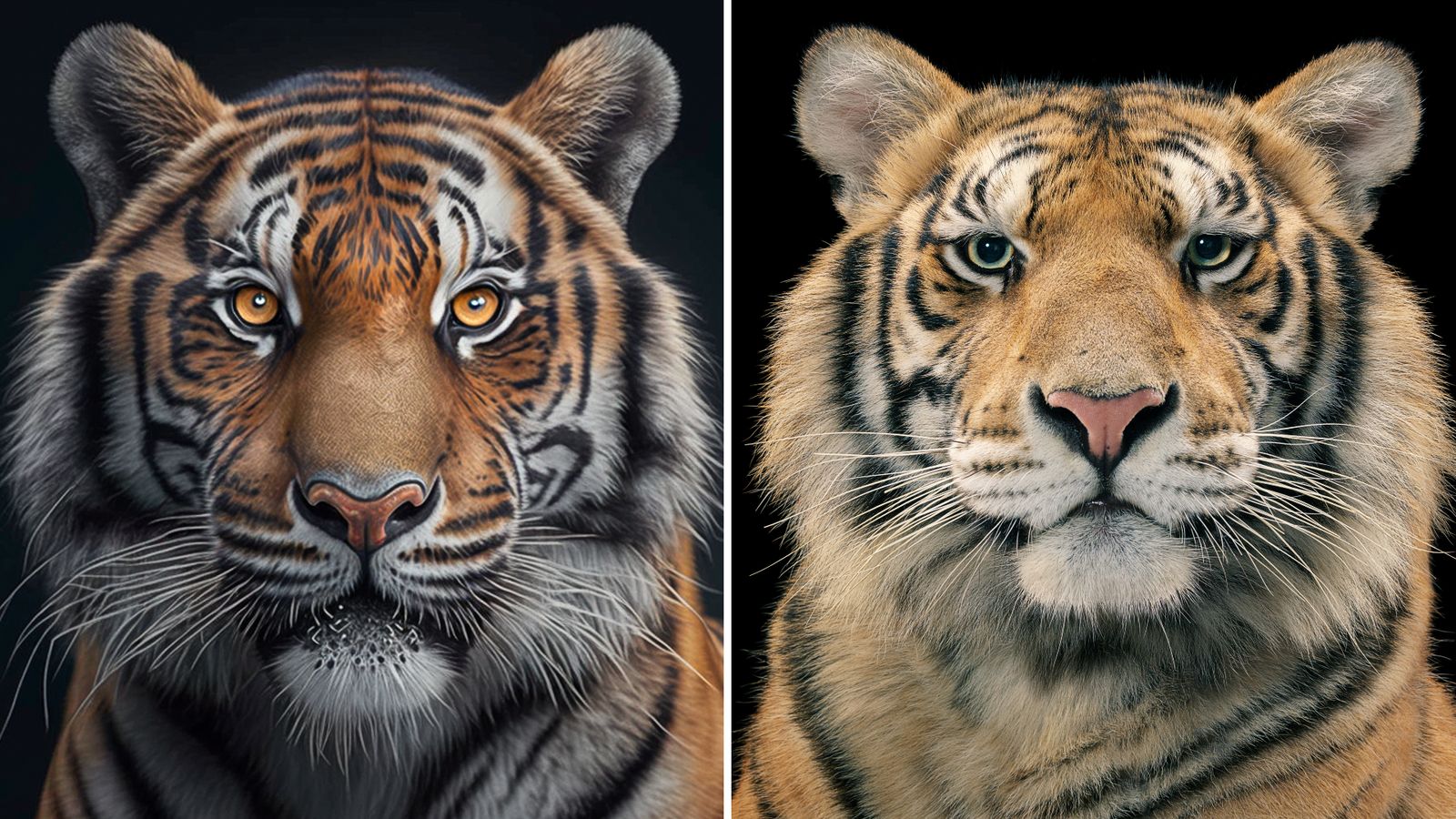AI art generators face backlash from artists – but could they unlock creative potential?

AI art generators are facing backlash from artists who say the technology is “scraping” their work without their consent in order to create sophisticated images.
Tim Flach, a world-renowned animal photographer and the president of the Association of Photographers, is among those who feel ripped off and says artificial intelligence can easily imitate the style of his images.
Sky News filmed Flach generating a photo very similar to one of his originals using AI.
“In the case of my tiger I have to put a lot of resources in there – I have to be in there with the tiger,” he said. “The machine doesn’t have to do that.
“But also the fact that at the moment these images are being generated by scraping our images, taking them off our websites, but there’s no remuneration there.”
He added: “For us in terms of livelihood, will there be legal frameworks that will allow us to invest creatively going forward?”
Trade bodies are calling for urgent regulation.
Isabelle Doran, the chief executive of the Association of Photographers, told Sky News: “These massive datasets have been accumulated from images that have been scraped without permission so effectively the photographers work must be remunerated … I think it’s only fair that creators are paid for the work that’s in those databases.”
The government is currently preparing an AI Code of Practice, but this will initially be voluntary.
Advertisement
Some artists see the creative potential in AI.
Mat Collishaw will open an exhibition of his work with new technology in London next week.
He told Sky News: “When photography was invented 150-odd years ago, for first 50 years most photography was just an imitation of painting … it took a long time before photographers thought ‘Hey, we can do this we can go down here’ … and I suppose it’s the same with any new iteration of technology.
“It takes time before people learn to use this new tool in a way that utilises all of its potential.”
However, where some see just another artistic tool, others worry about the outlines of a deeper, more troubling shift.
Comic book artist Dave McKean said: “I think this [is] redefinition of what creativity is – there’s never been such a huge gap between the sheer lack of effort or work or anything going in and the huge sophistication that then results coming out.
“And I think that’s just a dreadful shame. I think that what we lose in that is immense.”
Of the AI companies Sky News contacted, only one, Stability AI, responded.
Please use Chrome browser for a more accessible video player
2:16
Will this chatbot replace humans?
A spokesperson said the company was “building AI tools to unlock creative potential”.
“AI can help to simplify the creative process, but isn’t a replacement for creators,” they said. “For example, when using a version of Stable Diffusion, or one of the many text-to-image applications built on that suite of models, an artist controls the style, composition and arrangement of their work.
“These models are designed to act as an assistive technology and enhancement for artists, similar to what digital cameras or photo editing software has done for photography.
“Like those technologies, we expect AI to open up new opportunities for the creative industry and grow the pie for paid artistic work.
“We believe that a broad range of creative and professional talents will embrace AI and use it to rapidly implement designs and improve efficiency. AI can help professionals convert ideas into deliverables with greater creative control, less time, and lower production costs.”
Read more:
AI generated newsreader debuts in Kuwait
AI can now pick out transplant organs ‘more effectively than what human doctors can see’
Click to subscribe to the Sky News Daily wherever you get your podcasts
A government spokesperson said ministers were “seeking to strike a balanced and pragmatic approach which will allow AI innovators and creative industries to grow together in partnership”.
The Intellectual Property Office is to work with AI firms and rights holders to produce a Code of Practice and guidance on copyright and AI by the summer.
The spokesperson added that the government office will also “aim to make it easier for copyright holders to enforce their rights”.
“This will include providing guidance, coordinating intelligence on any systematic copyright infringement and encouraging the development of AI tools which assist with copyright enforcement,” they said.